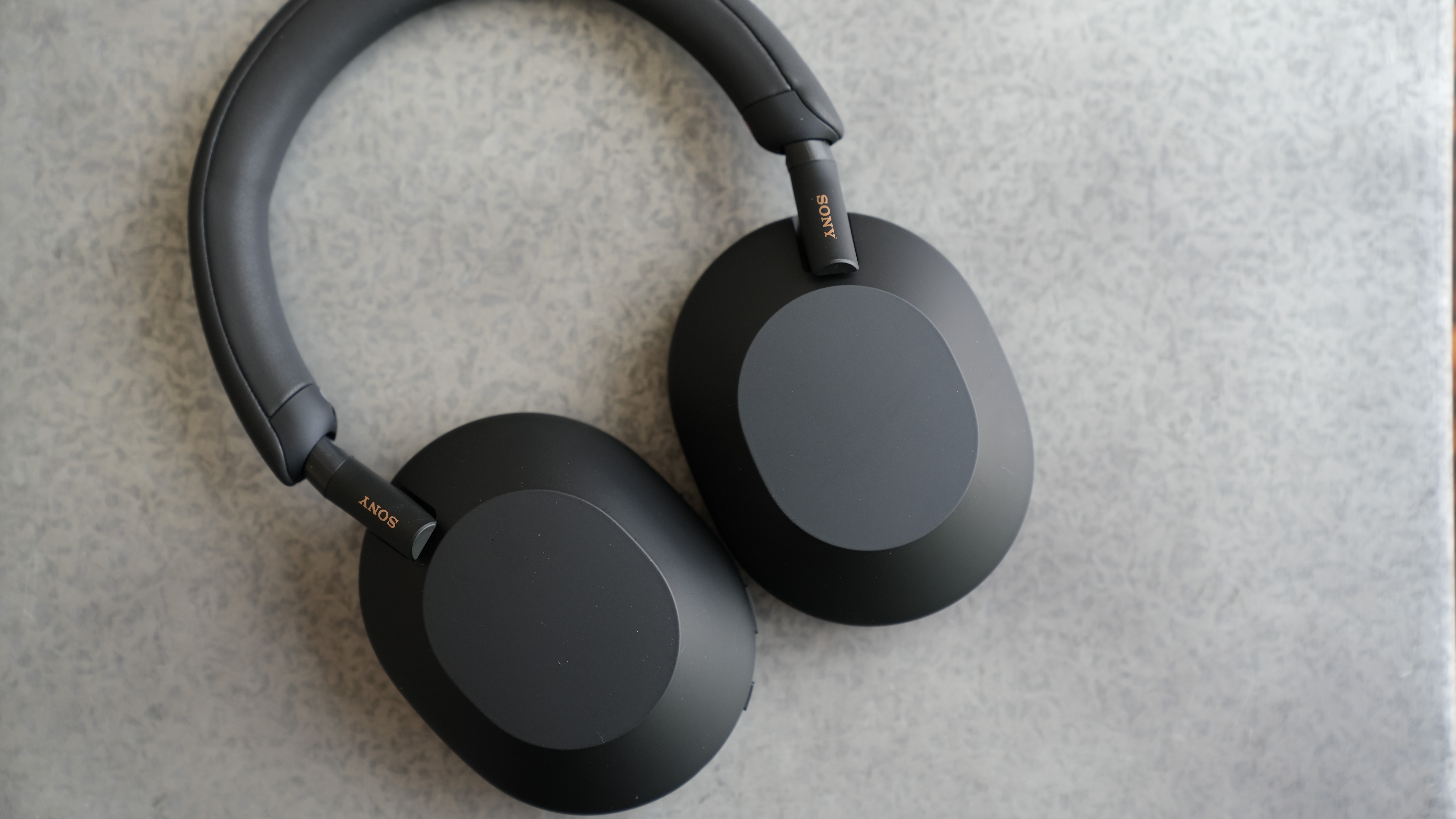Samsung Galaxy Z Flip 7 vs. Motorola Razr Ultra 2025: Which one will be the first to fold?
Motorola finally has a true flagship foldable with the Razr Ultra, which puts it in direct crosshairs with the Galaxy Z Flip 7.
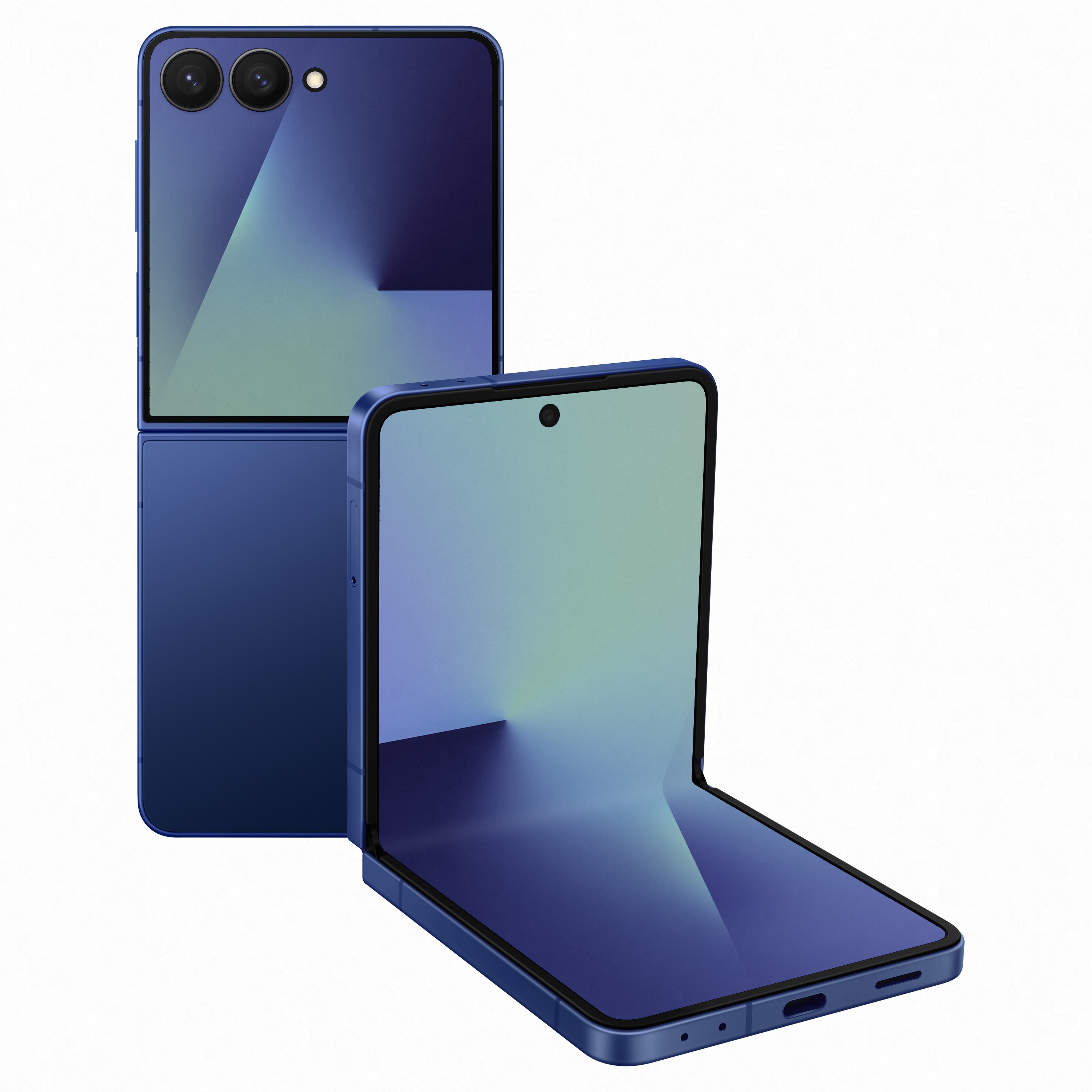
Taking cues from Motorola
The Galaxy Z Flip 7 is here, and Samsung finally decided to copy the Razr's edge-to-edge cover screen. Samsung's latest and greatest clamshell now includes two bigger displays, an Exynos 2500 chipset, and a larger battery.
Pros
- Bigger cover screen that wraps around rear camera lenses
- Longer battery life with larger 4,300mAh capacity
- Slimmer profile with 13.7mm thickness when shut
- Powered by One UI 8 with Galaxy and Google AI features
Cons
- Weaker cameras than the Razr Ultra 2025
- Slow charging speeds
- Lower-tier processor
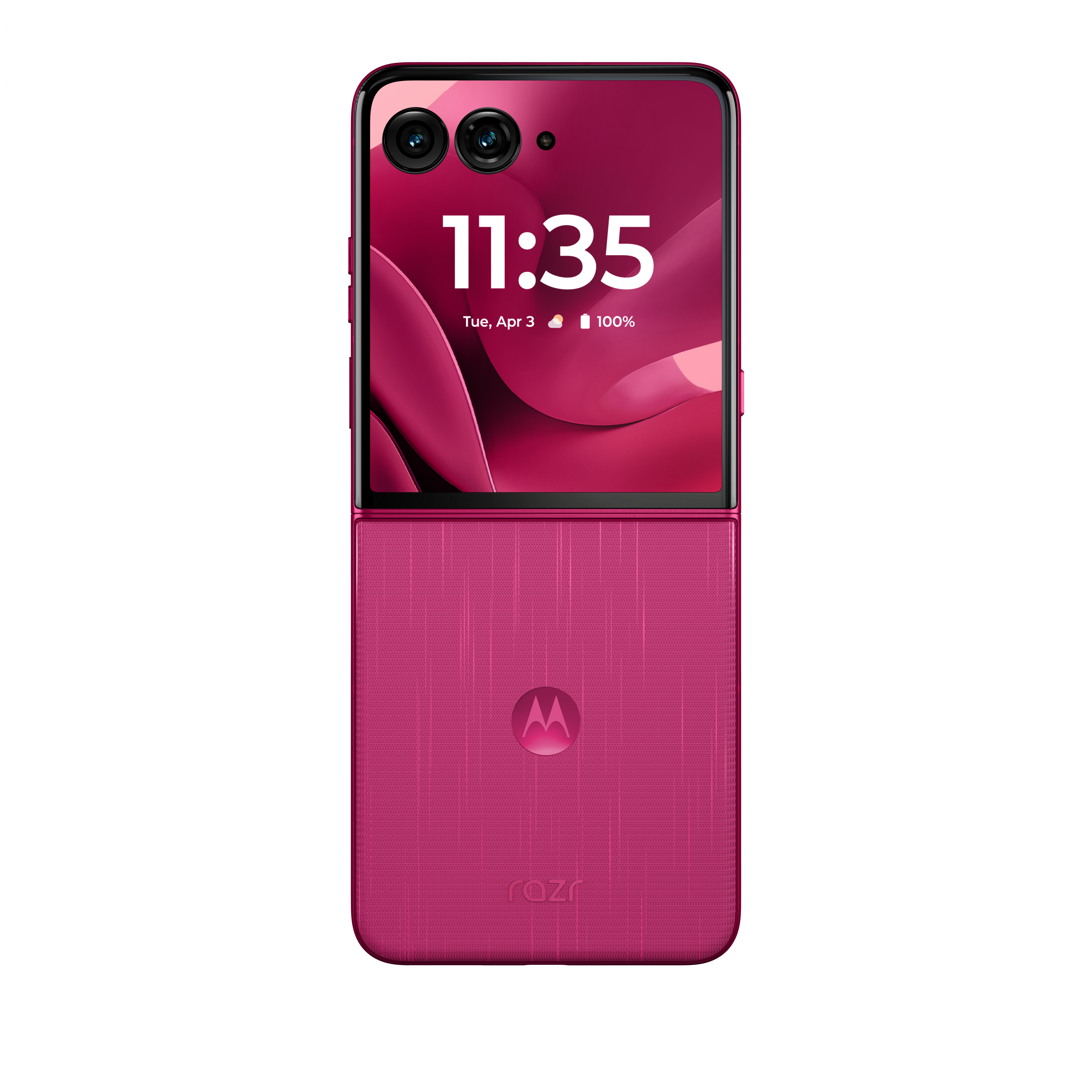
A proper Moto flip flagship
The Motorola Razr Ultra 2025 earns top spot in the company's lineup. It boasts of a flagship Qualcomm chip, larger battery, and extremely fast charging. Both displays have highly impressive specs, you get 50MP cameras all around, and the new Moto AI feature feel genuinely useful.
Pros
- Flagship Snapdragon SoC
- AI Key button is handy
- IP48 rating
- Impressive display specs
- Lean Android 15
- 68W wired charging
Cons
- Expensive
- No telephoto camera
- Only three promised OS upgrades
Motorola raised the bar for what a premium flip phone should look like with the Razr Ultra 2025. The $1,299 price tag officially makes it the most expensive Motorola flip phone yet, and is ready to take on the brand-new Samsung Galaxy Z Flip 7. While the Galaxy Z Flip 7 is still a pricey pick, its $1,099 retail price is lower than that of the Razr Ultra.
The question is, is it better to spend $200 more for the Motorola Razr Ultra 2025, or is the Galaxy Z Flip 7 all the foldable you need? One of these devices will capture the best foldable title, and now that the Galaxy Z Flip 7 is official, we're not far away from finding out. Here's how the top two clamshell foldables, the Razr Ultra 2025 and the Galaxy Z Flip 7, compare.
For more news and information on Samsung’s latest foldables, check out our Ultimate Guide.
Samsung Galaxy Z Flip 7 vs. Motorola Razr Ultra 2025: Pricing and availability
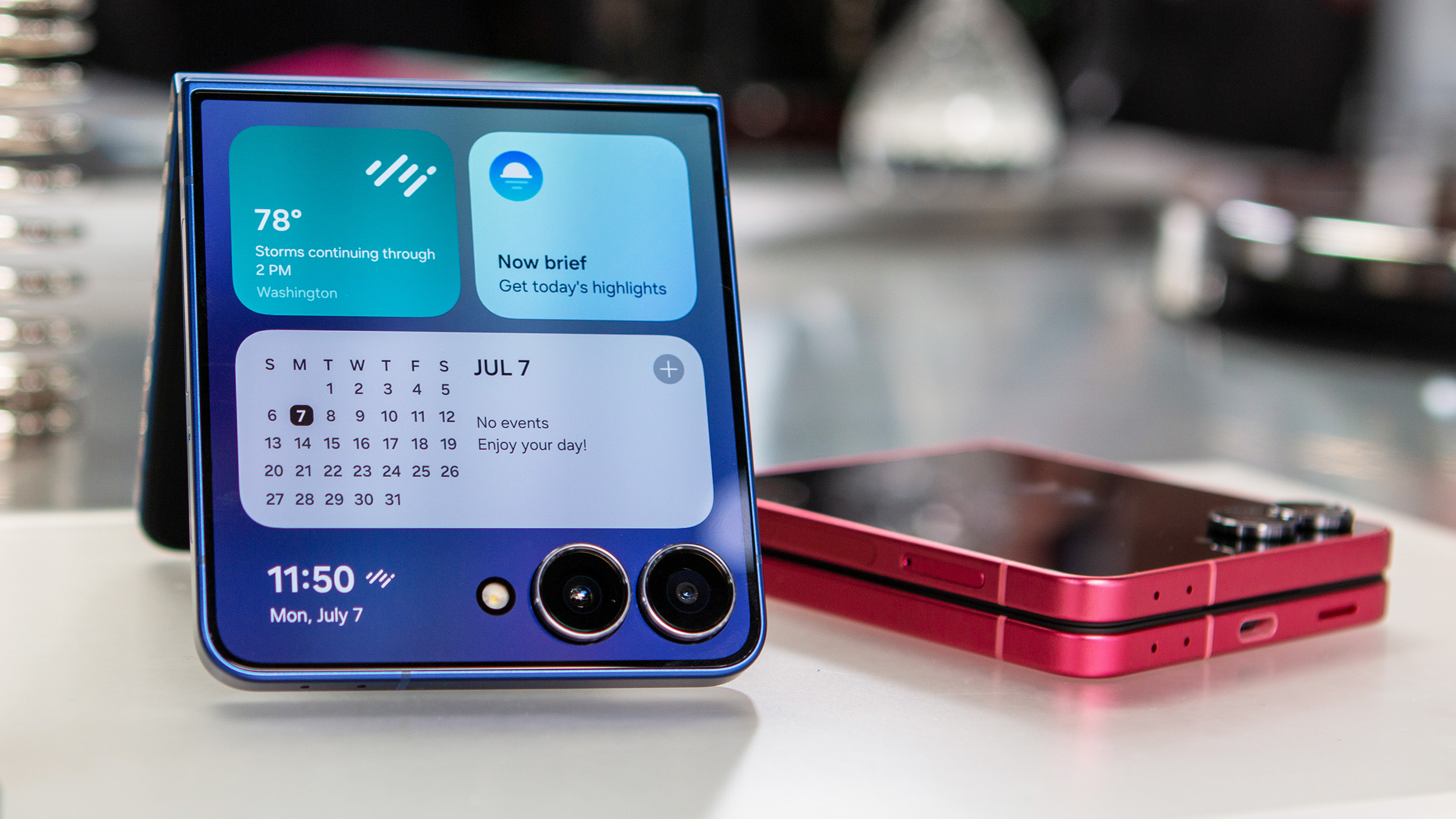
The Samsung Galaxy Z Flip 7 starts at the same price as the Z Flip 6: $1,099.99 for 256GB of storage and $1,219.99 for 512GB. Both variants come with 12GB of RAM. This makes the Flip 7 fairly expensive, just like its predecessor.
The Motorola Razr Ultra 2025 only comes in a single variant from most retailers and carriers, with 16GB of RAM and 512GB of storage for $1,299. It's only a little more than Samsung's equivalent storage variant, but you get a lot more RAM. Additionally, buying the phone directly from Motorola will score you 1TB of storage, more than Samsung has ever featured on a flip phone.
The Motorola Razr Ultra 2025 became generally available as of May 15, 2025. Pre-orders for the Galaxy Z Flip 7 opened on June 9 with general availability on July 25, 2025.
Samsung Galaxy Z Flip 7 vs. Motorola Razr Ultra 2025: Design and display
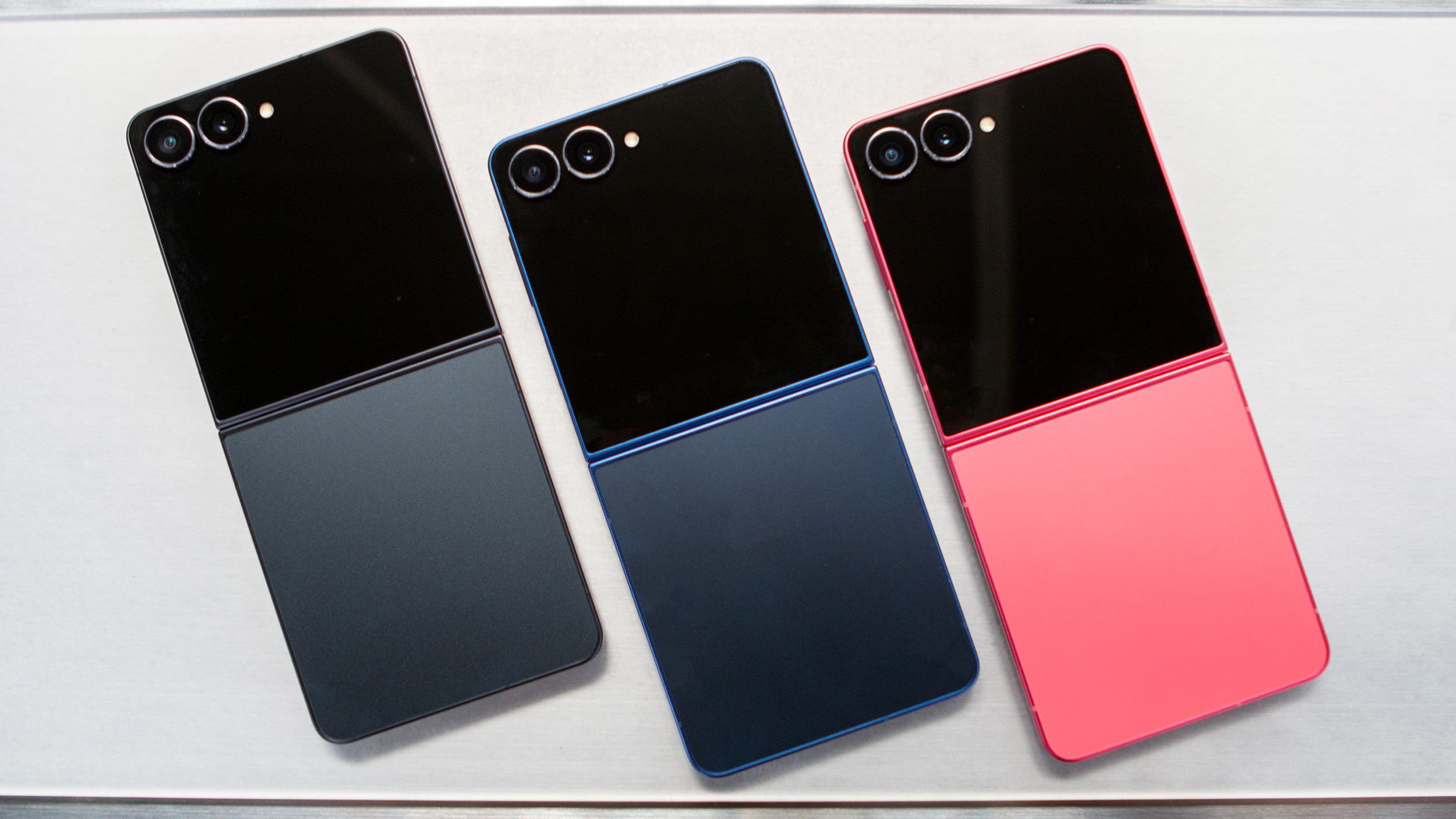
The Samsung Galaxy Z Flip 7 design features a few holdovers from the previous generation, including the boxy chassis. New this time around is an edge-to-edge cover screen with a larger usable area. This is nothing new for Motorola users, but recent Galaxy Z Flip models had a smaller "folder-style" cover screen. Now, the Galaxy Z Flip 7 sports a 4.1-inch cover screen that wraps around the rear camera lenses.
Get the latest news from Android Central, your trusted companion in the world of Android
Notably, the Galaxy Z Flip 7 is thinner than the Motorola Razr Ultra 2025. Samsung's new foldable measures 13.7mm when closed, whereas Motorola's phone is 15.7mm thick. That two-millimeter difference could make a huge difference, especially if you like to use your phone with a case. Samsung prioritized durability with the Galaxy Z Flip 7, as it is IP48 certified and also uses a mix of Armor Aluminum and Gorilla Glass Victus 2.
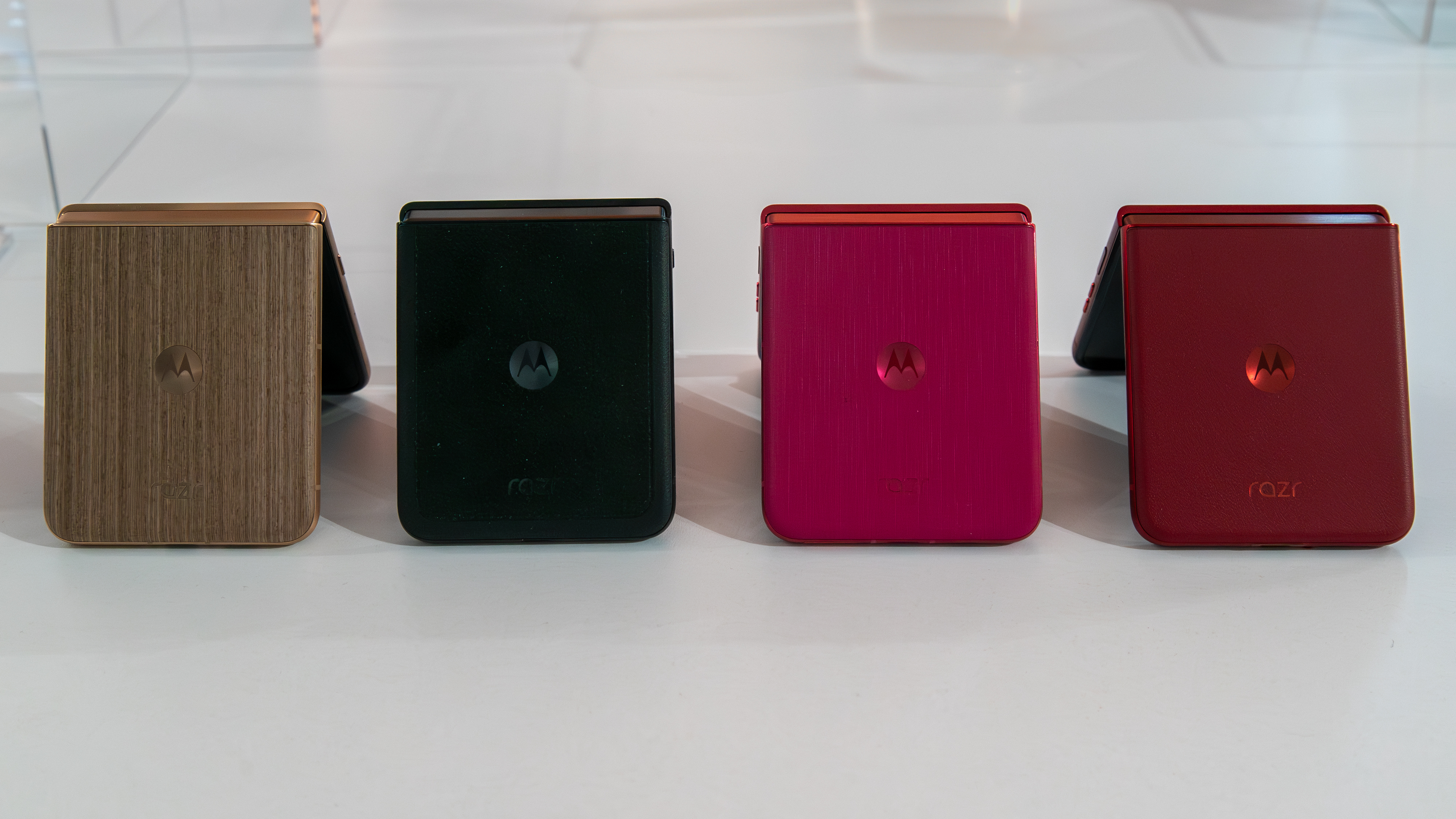
The Motorola Razr Ultra 2025's design and displays are in another league altogether, which is interesting when you consider how poorly Motorola lagged behind Samsung when both had just introduced their first-gen flip phones. Motorola's obsession with adding different textures to the bottom half of the phone continues as the Razr Ultra gets two unique finishes, including one with wood and another with Alcantara.
The Ultra's display specs are epic. Both screens on the Razr Ultra 2025 have a 165Hz refresh rate and are bright pOLED panels. The Super HD+ resolution of the internal display is also quite high, finding a medium between FHD+ panels on many flagships and QHD displays on premium models. The outer glass gets Corning Gorilla Glass Ceramic, which should help it survive scratches and cracks well.
Meanwhile, the Galaxy Z Flip 7's main display is a 6.9-inch Dynamic AMOLED 2X panel supporting variable refresh rates up to 120Hz. The cover screen can shift between 60Hz and 120Hz presets but can fluctuate beyond those two settings. Samsung's displays aren't bad, although Motorola has a clear edge here.
Samsung Galaxy Z Flip 7 vs. Motorola Razr Ultra 2025: Hardware and specs
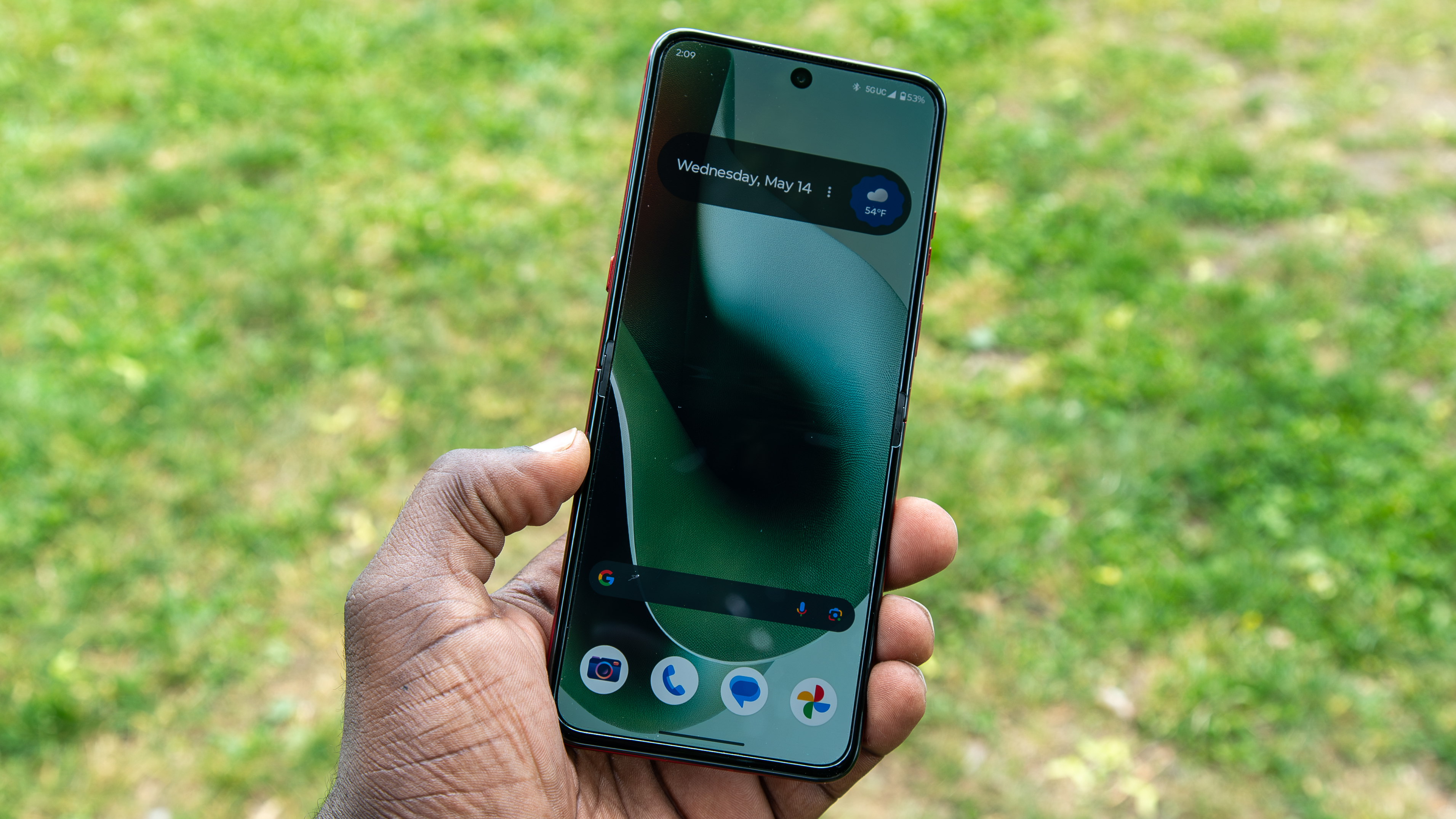
Part of the justification for the Razr Ultra 2025's high price tag is the inclusion of a bona-fide flagship chip. Motorola is powering the Razr Ultra 2025 with the Qualcomm Snapdragon 8 Elite mobile platform, which is currently the best Android processor in the world. Meanwhile, Samsung appears to be taking a step back with the Galaxy Z Flip 7, leaving Qualcomm behind in favor of its own Exynos 2500 silicon.
Samsung says that the Galaxy Z Flip 7 is more powerful because of the switch to the 3nm-based processor, but the Snapdragon 8 Elite chip is widely considered to be the stronger option. Motorola has another advantage in performance, packing 16GB of RAM. Samsung only ships the Galaxy Z Flip 7 with 12GB of memory by comparison.
For what it's worth, Samsung has the major edge in software support, as it promises seven years of Android OS and security updates. The phone starts with One UI 8, based on Android 16. Motorola ships the Razr Ultra 2025 with Android 15 and only guarantees three Android OS upgrades.
Category | Samsung Galaxy Z Flip 7 | Motorola Razr Ultra 2025 |
|---|---|---|
Folding display | 6.9-inch, 2520 x 1080, FHD+, Dynamic AMOLED 2X, LTPO (1-120Hz) | 7-inch LTPO AMOLED, 165Hz, 2912 x 1224 resolution, 4,500 nits |
Cover display | 4.1-inch Super AMOLED, 60/120Hz, 948 x 1048 | 4-inch LTPO AMOLED, 165Hz, 1272 x 1080, 417 ppi, Gorilla Glass Ceramic |
Operating System | Android 16 (One UI 8), seven OS upgrades | Android 15 (Hello UX), three OS upgrades |
Chipset | Samsung Exynos 2500 | Snapdragon 8 Elite |
RAM | 12GB | 16GB |
Storage | 256GB, 512GB | 512GB |
Rear Camera 1 | 50MP, f/1.8 wide | 50MP wide, f/1.8, PDAF, OIS |
Rear Camera 2 | 12MP, f/2.2 ultrawide | 50MP ultrawide, f/2.0, 122˚ |
Front-facing Camera | 10MP, f/2.2 wide | 50MP wide, f/2.0 |
Battery | 4,300mAh | 4,700mAh |
Charging | 45W wired charging, 15W fast wireless charging 2.0, 4.5W reverse wireless charging | 68W wired charging, 30W fast wireless charging 2.0, 5W reverse wireless charging |
Connectivity | 5G, Wi-Fi 7, Bluetooth 5.4, NFC | 5G, Wi-Fi 7, Bluetooth 5.4, NFC |
Weight | 188g | 199g |
Dimensions (folded) | 85.5 x 75.2 x 13.7 mm | 88.1 x 74 x 15.7 mm |
Dimensions (unfolded) | 166.7 x 752.2 x 6.2 mm | 171.5 x 74 x 7.2 mm |
Protection | IP48, Armor Aluminum frame, Gorilla Glass Victus 2 (cover display, rear panel), PET screen protector (inner display) | IP48, aluminum frame (6000 series), titanium hinge |
Motorola still retains the battery life and charging superiority, though. Samsung increased the Galaxy Z Flip 7's capacity to 4,300mAh, but it's still not enough to beat the Razr Ultra 2025 and its 4,700mAh battery. Better yet, the Motorola Razr Ultra 2025's 68W wired charging support will crush the Galaxy's top speed of 25W.
Motorola is doubling down on AI this year to better compete with Samsung. The Razr Ultra 2025 has a dedicated button to activate the Moto AI hub, which is genuinely useful and does not feel like an afterthought. One of the unique new features is Look and Talk, which lets the phone's owner simply look at the phone in tented mode and start conversing with the AI.
Meanwhile, Samsung's Galaxy AI suite of features remains one of the best, giving users plenty of options for generating, summarizing, translating, and much more. And while Bixby is still here, Samsung is leaning on Gemini, which is arguably a smart choice.
Samsung Galaxy Z Flip 7 vs. Motorola Razr Ultra 2025: Cameras
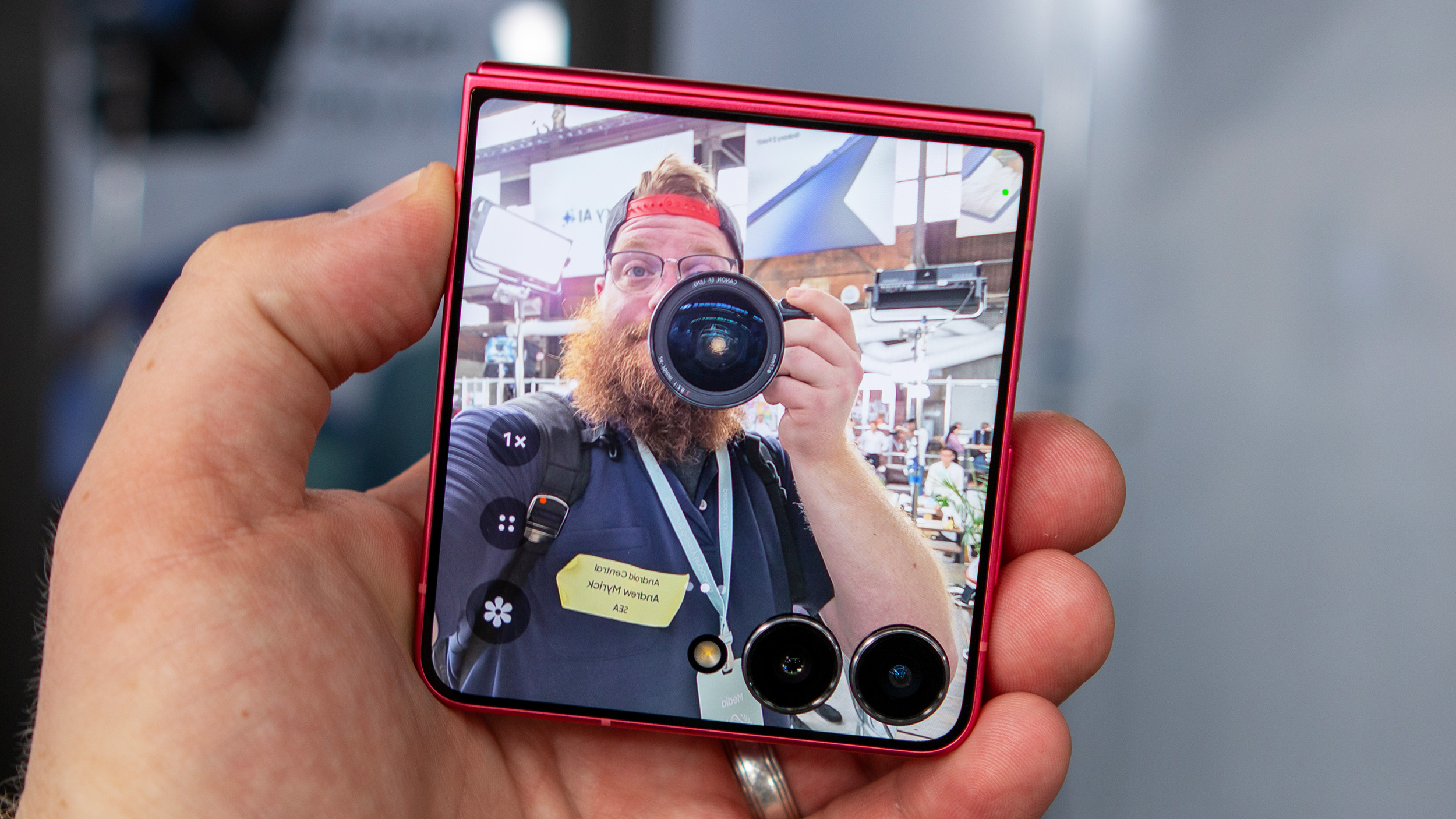
The Galaxy Z Flip 7 is equipped with a main 50MP sensor with optical stabilization and a 12MP ultrawide camera on the rear. The camera in the folding display is the same 10MP sensor again, so there aren't any hardware upgrades here. Real-world image quality should be better, especially if there are some new optimizations resulting from the switch to Exynos. If quality is better, it'll be due to software rather than hardware.
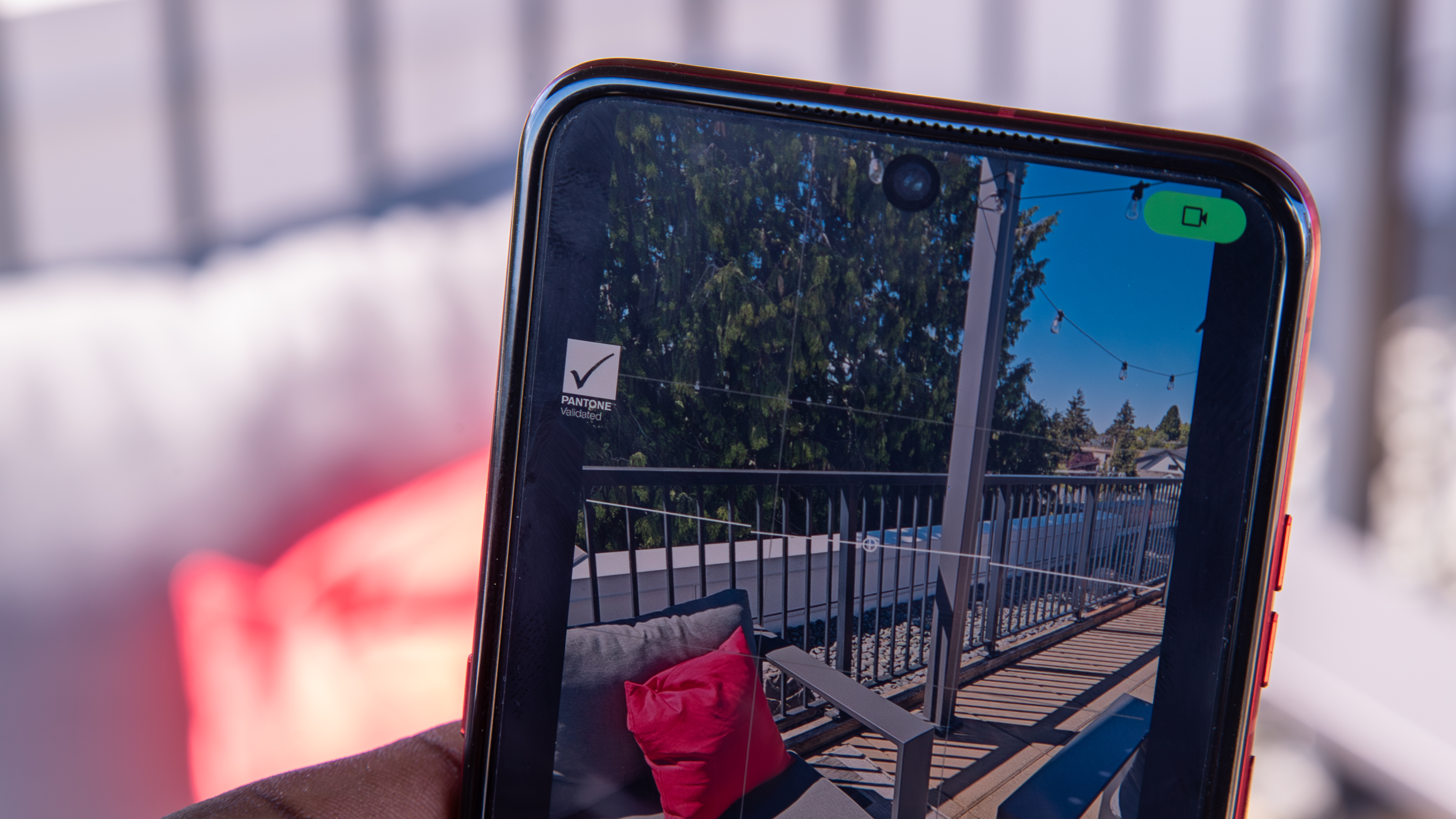
Meanwhile, the Motorola Razr Ultra 2025 now comes with Pantone Validated cameras, which Motorola says should deliver better skin tones and color reproduction. The Razr Ultra also has a 50MP primary camera with a similar aperture and specs. There's also a 50MP ultrawide, which, in all likelihood, should be able to capture a greater level of detail than the Z Flip 7's smaller sensor. Motorola uses a 50MP sensor for the selfie camera, too, which, again, should produce much better photos than Samsung.
Both phones might offer similar performance in daylight shots, but Motorola should have the edge in low-light and ultrawide photos. It can also shoot at 8K, while the Z Flip 7 is limited to 4K.
Samsung Galaxy Z Flip 7 vs. Motorola Razr Ultra 2025: Which one should you buy?
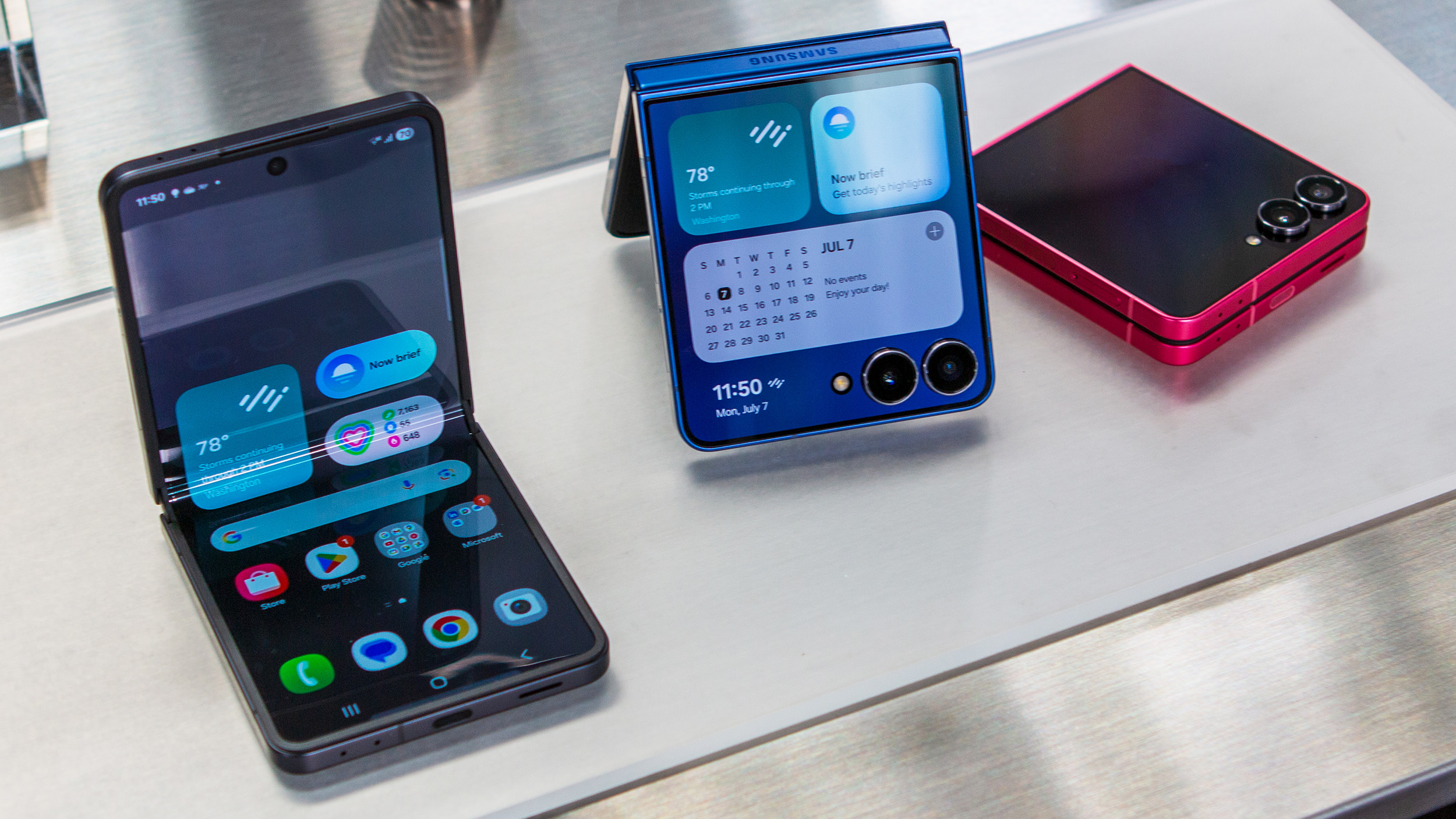
I know it's easier to recommend the Samsung Galaxy Z Flip 7 for its wider availability and longer software support, but the Motorola Razr Ultra 2025 just feels like the better product, as of now, anyway. It's expensive, sure, but you get some of the best specs not found anywhere on flip phones in the U.S., along with excellent carrier support. If you're not too bothered with keeping the phone for very long, then the Razr Ultra 2025 looks like a winner through and through.
That being said, the Galaxy Z Flip 7 does come with its advantages. Notably, getting Android 16 out of the box and seven years of upgrades thereafter is a huge perk. Its cheaper price is appealing, too. You'll just have to acknowledge that, technically speaking, the Galaxy Z Flip 7 isn't the top-of-the-line clamshell foldable anymore.
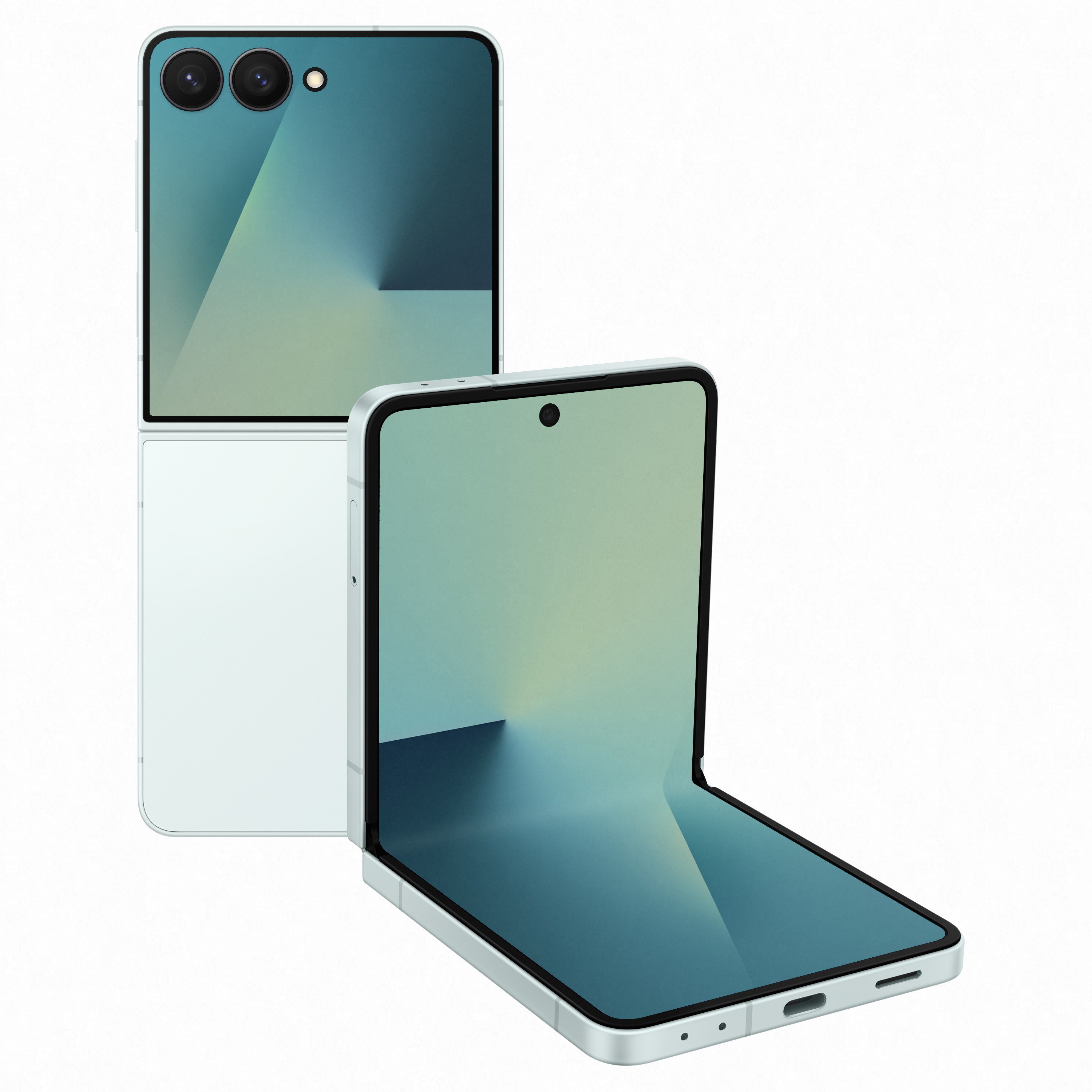
The newest Galaxy Z Flip
Despite featuring a few upgrades the Galaxy Z Flip 7 still feels like it's playing second fiddle to the Razr Ultra 2025. Samsung finally decided to copy the Razr's edge-to-edge cover screen, but it might be too late.
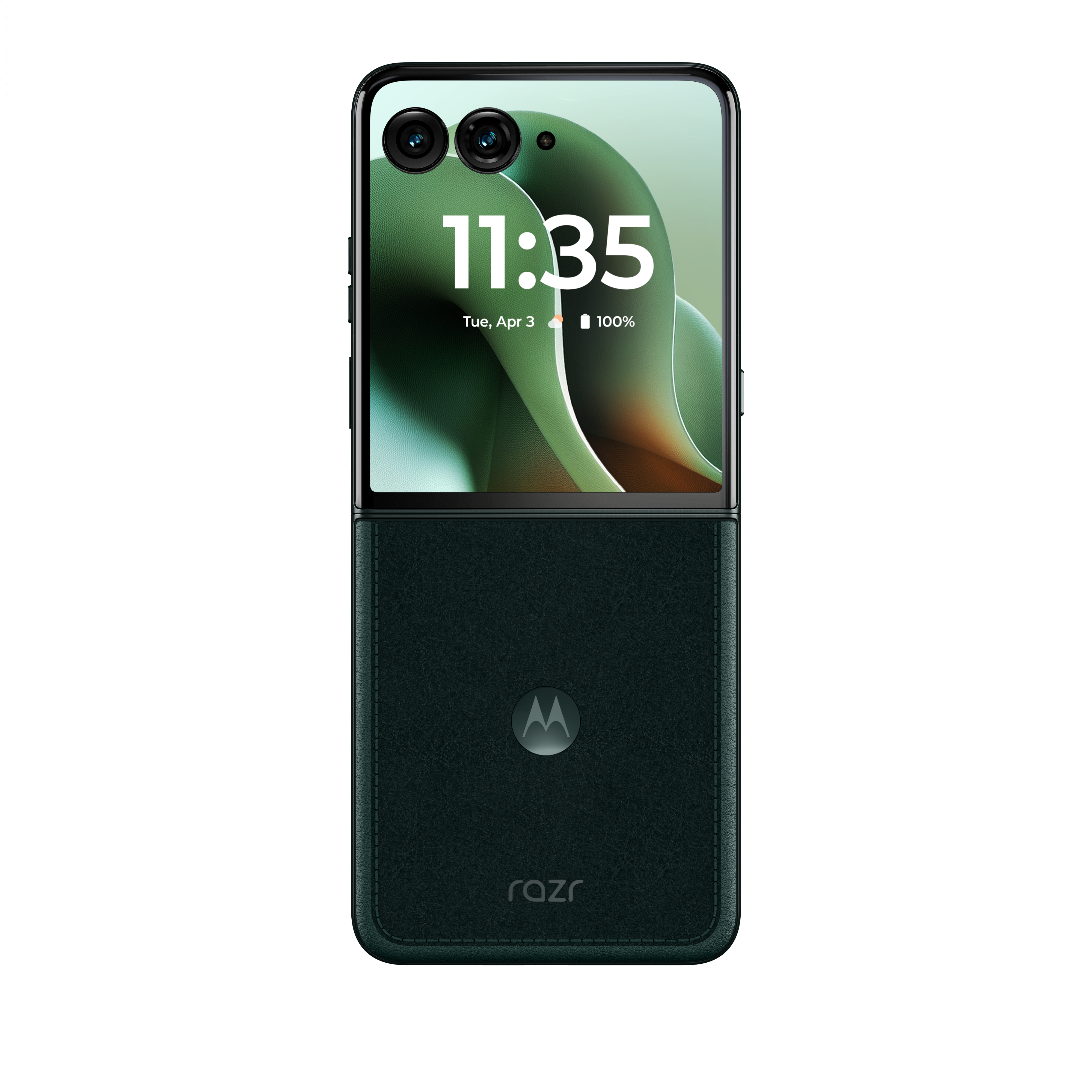
Major competition
The Motorola Razr Ultra 2025 is a proper flip flagship and has its eyes set straight on the Galaxy Z Flip 7. It's got all the makings of a proper high-end phone, including the price, making it the best Motorola has ever produced.

Roydon has been writing about personal technology for 10+ years, and has covered everything from news, reviews, features, to on-ground coverage of big trade shows like CES. He's passionate about mobile technology and computing, dabbles with photography, and is still struggling to work his way through his Steam and PS4 game library.
You must confirm your public display name before commenting
Please logout and then login again, you will then be prompted to enter your display name.
